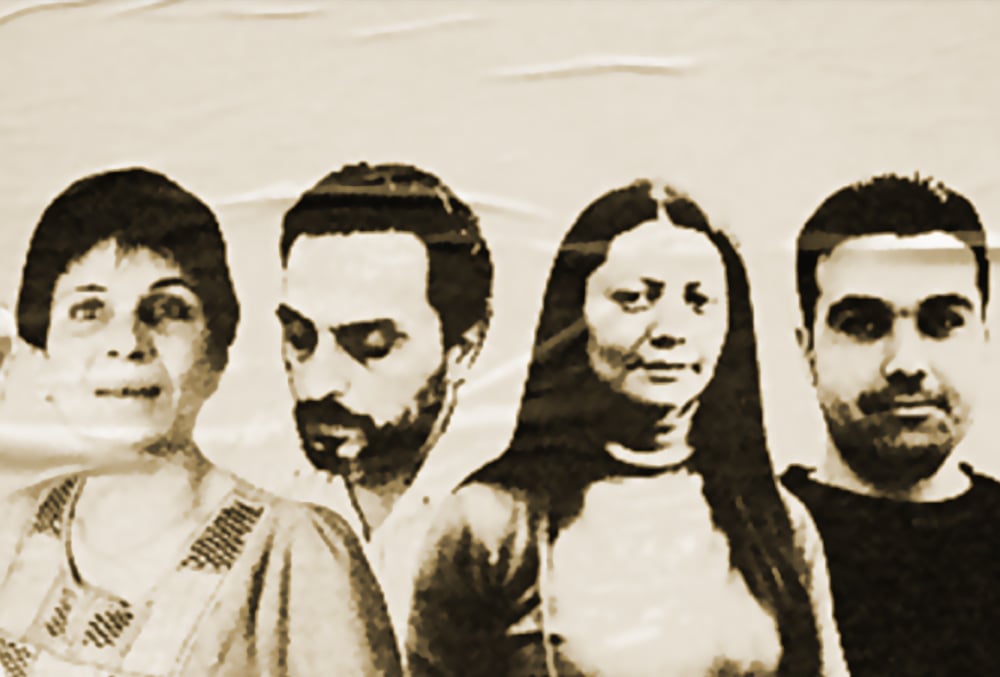
On December 9, 2013, a group of gunmen stormed the offices of the Violations Documentation Center in Syria in Douma, Damascus countryside and abducted Razan Zaitouneh and three other activists: Samira Khalil, Nazim Hamada and Wael Hamada. Their whereabouts is still unknown, which exacerbated concerns about their health and safety.
Razan Zaitouneh is one of the main lawyers who defended political prisoners in Syria since 2001. She started her human rights activism years before March 2011. After March 2011, Razan and her colleague, lawyer Nazim Hamada were among the first supporters of the Syrian street protests. Razan took part in those protests, talked to the media and wrote down her observations. In collaboration with a number of activists, she set up the Violations Documentation Center in Syria. She was also a founder of the Local Coordination Committees, which organized the work of the local committees in various Syrian cities and towns. Razan was exposed to fierce security prosecution and in the fall of 2011, because of her work razan suffered from a lot of security harassment and in 2011 her husband, Wael Hamada and his brother were arrested by the Air Force Intelligence and they were released later.
Razan and her husband went into hiding. Nazim and Samira continued their activities underground amid persistent security chase. In 2013, the four of them moved to Douma (which had come out of regime control). Razan continued her work in the VDC management and established the “local development and SME support office”, which provided assistance to NGOs operating in the besieged Eastern Ghouta.
In honor of her human rights activism, Razan Zaitouneh won numerous international awards including Sakharov Prize for Freedom of Thought in 2011, Anna Politkovskaya Award in 2011 (by Reach All Women in War) and the International Women of Courage Award in 2013. Yet, she could not receive those prizes in person because she was at the time under travel ban. This was just one among numerous sacrifices made by Razan. Nazim Hamada also could not print his second poetry book because he was an activist- under different names- documenting human rights violations committed in Syria by different parties.
Like Wael, Nazem and Razan, Samira Khalil, a former political detainee (1987-1991), refused to get out of Douma. They preferred to live together or die together. They chose to stay with the people under siege and daily bombardment.
“Nothing, not even our ten thousand martyrs, choking siege or the betrayal of the international community would defeat the will of the people who dream and believe in the future,” says Razan in an interview with the International Federation for Human Rights before her abduction.
While the armed factions in the Eastern Ghouta issued a statement immediately after their kidnapping denying responsibility for that crime and for other violations in Eastern Ghouta, these factions did not facilitate a prompt, serious and independent investigation to uncover the fate of the four kidnapped, despite the fact that the protection of civilians is the responsibility of any party in the areas under their control.


